UK writer takes delight from Soweto children
by Sue Blaine,
2016-02-15 09:41:25.0
I LOVED Soweto, says children’s writer Julia Donaldson, demonstrating the enthusiastic sung welcome she got from children there.
Donaldson is the UK’s highest earning children’s writer, for the sixth year running, with sales of £14m, followed by David Walliams with £11m and JK Rowling with £8m.
"I just loved their delight in the moment," she says of Soweto’s children.
It’s 20 minutes before Donaldson, husband Malcolm Donaldson and South African songwriter Alan Glass, famous with Ed Jordan for the Beautiful Creatures CDs, go back on stage for another The Gruffalo and Friends with Julia Donaldson show. They have been packed to the hilt, and outside the Linder auditorium Exclusive Books staff share stories of children standing on their seats screaming like Beliebers.
"It’s amazing here," she says, "I hold up a book on stage and the whole place becomes a riot. It’s so far (away from her home in Glasgow, Scotland)."
As a child in postwar London Donaldson made up stories with her sister Mary. She went on to study French and drama at Bristol University before busking through Europe with Malcolm. Of her 184 published works, 64 are widely available in bookshops. The remaining 120 are intended for school use and include her Songbirds phonic reading scheme, which is part of the Oxford Reading Tree.
She did not start off as an author but as a songwriter. "I didn’t decide to be a writer," she says. "I was approached by a publisher."
The children’s book editor in question had heard Donaldson’s song about a scarecrow’s wedding and wanted to turn it into a children’s picture book. "She couldn’t get it out of her head," says Donaldson. She has just written a song for the audio version of the book.
The Gruffalo, for which she is most famous, came after "about 16" books. It has sold over 13-million copies, has won several prizes for children’s literature, and has been developed into plays on both London’s West End and Broadway in the US. It’s the story of a mouse who outwits a fox, an owl, and a snake, all expecting to make a meal of it.
"It was going to be a play," she says, but then I thought I would keep the idea up my sleeve for a bit."
Donaldson has written several plays, and did so before any of her children’s stories were published. "I’ve written 36 or more plays for children to read aloud. As a mom with primary school children I was thinking of brilliant ways to get children reading." A "parent helper" at her children’s school, Donaldson would write plays, being careful to give each character roughly equal play so that participants would be able to read in turn "till everyone had a go at each part."
"When I became laureate I said I thought it would be great to have a series of these," she says. One has been produced — Plays To Read — written by a list of guest authors.
Her first South African tour is also a holiday. She and Malcom have already spent time in Hermanus in the Western Cape, and is off to the Drakensberg and to a game lodge in the Waterberg.
"I don’t write every day," she says of the craft that has made her wealthy, "Unless you’ve got this great idea you can’t write, but I do a lot of thinking and that’s a kind of writing. I often get ideas when I am not doing much, so I will probably spend an hour writing every day (while on holiday in South Africa)."
Planning is what is important, she says. "It’s the most difficult part. A lot of adult writers don’t think enough about their plots. I bet Jane Austen did — her plots are terribly clever."
Many, but not all, Donaldson’s books for small children are written in strict rhyming metre. "That’s all the years of song writing, and we studied Shakespeare every year at school, and sang hymns. They take a lot of crafting, the ones that trip off the tongue, but they are rather laborious to write. I do take pride in making it sound right."
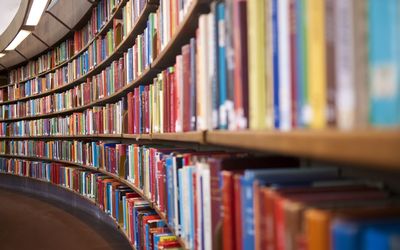
Picture: THINKSTOCK
I LOVED Soweto, says children’s writer Julia Donaldson, demonstrating the enthusiastic sung welcome she got from children there.
Donaldson is the UK’s highest earning children’s writer, for the sixth year running, with sales of £14m, followed by David Walliams with £11m and JK Rowling with £8m.
"I just loved their delight in the moment," she says of Soweto’s children.
It’s 20 minutes before Donaldson, husband Malcolm Donaldson and South African songwriter Alan Glass, famous with Ed Jordan for the Beautiful Creatures CDs, go back on stage for another The Gruffalo and Friends with Julia Donaldson show. They have been packed to the hilt, and outside the Linder auditorium Exclusive Books staff share stories of children standing on their seats screaming like Beliebers.
"It’s amazing here," she says, "I hold up a book on stage and the whole place becomes a riot. It’s so far (away from her home in Glasgow, Scotland)."
As a child in postwar London Donaldson made up stories with her sister Mary. She went on to study French and drama at Bristol University before busking through Europe with Malcolm. Of her 184 published works, 64 are widely available in bookshops. The remaining 120 are intended for school use and include her Songbirds phonic reading scheme, which is part of the Oxford Reading Tree.
She did not start off as an author but as a songwriter. "I didn’t decide to be a writer," she says. "I was approached by a publisher."
The children’s book editor in question had heard Donaldson’s song about a scarecrow’s wedding and wanted to turn it into a children’s picture book. "She couldn’t get it out of her head," says Donaldson. She has just written a song for the audio version of the book.
The Gruffalo, for which she is most famous, came after "about 16" books. It has sold over 13-million copies, has won several prizes for children’s literature, and has been developed into plays on both London’s West End and Broadway in the US. It’s the story of a mouse who outwits a fox, an owl, and a snake, all expecting to make a meal of it.
"It was going to be a play," she says, but then I thought I would keep the idea up my sleeve for a bit."
Donaldson has written several plays, and did so before any of her children’s stories were published. "I’ve written 36 or more plays for children to read aloud. As a mom with primary school children I was thinking of brilliant ways to get children reading." A "parent helper" at her children’s school, Donaldson would write plays, being careful to give each character roughly equal play so that participants would be able to read in turn "till everyone had a go at each part."
"When I became laureate I said I thought it would be great to have a series of these," she says. One has been produced — Plays To Read — written by a list of guest authors.
Her first South African tour is also a holiday. She and Malcom have already spent time in Hermanus in the Western Cape, and is off to the Drakensberg and to a game lodge in the Waterberg.
"I don’t write every day," she says of the craft that has made her wealthy, "Unless you’ve got this great idea you can’t write, but I do a lot of thinking and that’s a kind of writing. I often get ideas when I am not doing much, so I will probably spend an hour writing every day (while on holiday in South Africa)."
Planning is what is important, she says. "It’s the most difficult part. A lot of adult writers don’t think enough about their plots. I bet Jane Austen did — her plots are terribly clever."
Many, but not all, Donaldson’s books for small children are written in strict rhyming metre. "That’s all the years of song writing, and we studied Shakespeare every year at school, and sang hymns. They take a lot of crafting, the ones that trip off the tongue, but they are rather laborious to write. I do take pride in making it sound right."


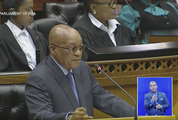
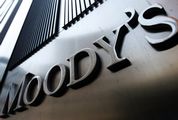
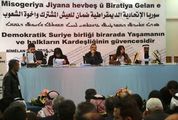
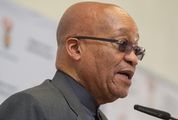


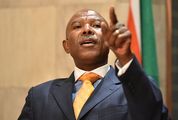

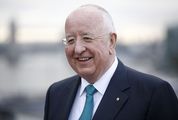
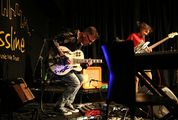
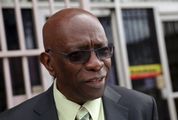







Change: 0.96%
Change: 0.73%
Change: 2.82%
Change: -0.03%
Change: 2.23%
Data supplied by Profile Data
Change: 0.42%
Change: 0.90%
Change: 0.96%
Change: 0.00%
Change: 0.66%
Data supplied by Profile Data
Change: 0.34%
Change: 0.25%
Change: 0.38%
Change: 0.44%
Change: 0.47%
Data supplied by Profile Data
Change: 0.42%
Change: 0.51%
Change: 1.07%
Change: 0.34%
Change: 0.29%
Data supplied by Profile Data